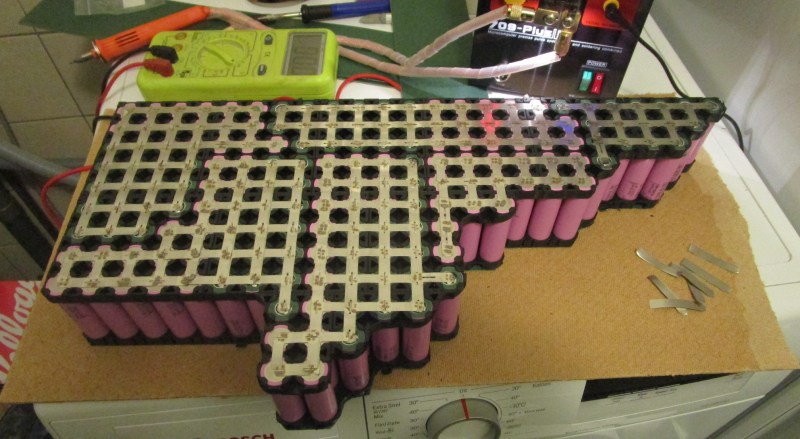It may not look like it in some parts of the world, but electric vehicles are gaining more and more market share over traditional forms of transportation. The fastest-growing segment is the e-bike, which some say are growing at 16x the rate of conventional bikes (which have grown at 15% during the pandemic). [Jacques Mattheij] rides an S-Pedelec, which is a sort of cross between a moped and an e-bike. There were a few downsides, and one of those was the pitiful range, which needed to be significantly upgraded.
The S-Pedelec that [Jacques] purchased is technically considered a moped, which means it needs to ride in traffic. The 500 watt-hour battery would only take him 45km (~28 miles) on a good day, which isn’t too bad but a problem if your battery runs down while in traffic, struggling to pedal a big heavy bicycle-like thing at car speed. You can swap batteries quickly, but carrying large unsecured extra batteries is a pain, and you need to stop to change them.
There were a few challenges to adding more batteries. The onboard BMS (battery management system) was incredibly picky with DRM and fussy about how many extra cells he could add. The solution that [Jacques] went with was to add an external balancer. This allowed him to add as many cells as he wanted while keeping the BMS happy. The battery geometry is a little wonky as he wanted to keep the pack within the frame. Putting it over the rear wheel would shift the center of gravity higher, changing the bike’s handling. After significant research and preparation, [Jacques] welded his custom battery back together with a spot welder. The final capacity came in at 2150wh (much better than the initial 500wh). An added benefit of the extra range is the higher speed, as the bike stays in the higher voltage domain for much longer. In eco mode, it can do 500km or 180km at full power.
It’s awe-inspiring, and we’re looking forward to seeing more e-bikes in the future. Maybe one day we’ll have tesla coil wireless e-bikes, but until then, we need to make do with battery packs.
Source:: Hackaday

